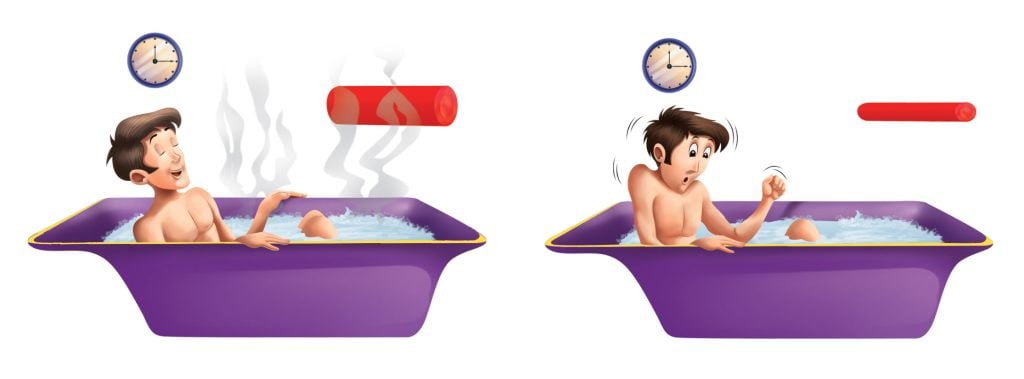
You will need:
- Bath tub or large tub
- Hot water
- Cold water
- Blood pressure monitor
- Pen and paper
- Stopwatch
Find out whether blood pressure would increase or decrease in hot water.
INSTRUCTIONS
- Learn to record blood pressure with the blood pressure monitor from an adult. Once you have mastered that, record the blood pressure of your friendly adult.
- Next, request him to sit in a tub full of hot water. The water should not be boiling hot, but warmer than tepid temperature.
- As soon as he sits in the tub, start the stopwatch. Set it to 15 minutes.
- After 15 minutes, once again record his blood pressure.
- Wait for 15 minutes; record his blood
pressure again. Note whether it has
returned to a normal level. - Next, ask him to sit in a tub full of
cold water for 10-15 minutes. - Record his blood pressure.Learn to record blood pressure with the blood pressure monitor from an adult. Once you have mastered that, record the blood pressure of your friendly adult.
- Next, request him to sit in a tub full of hot water. The water should not be boiling hot, but warmer than tepid temperature.
- As soon as he sits in the tub, start the stopwatch. Set it to 15 minutes.
- After 15 minutes, once again record his blood pressure.
- Wait for 15 minutes; record his blood
- pressure again. Note whether it has
- returned to a normal level.
- Next, ask him to sit in a tub full of
- cold water for 10-15 minutes.
- Record his blood pressure.
RESULT
When we sit in a tub full of hot water, vasodilation takes place, which results in the blood pressure actually dropping. Higher temperature makes our muscles relax, dilating the vessels, lowering the pressure exerted on these vessels. Whereas in colder temperatures, our muscles contract increasing the pressure in our blood vessels.

